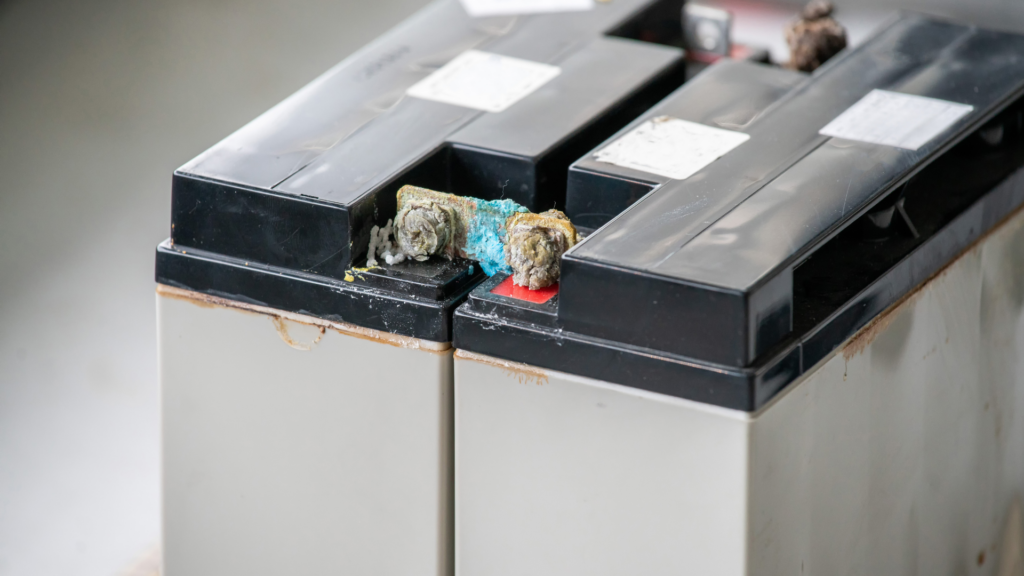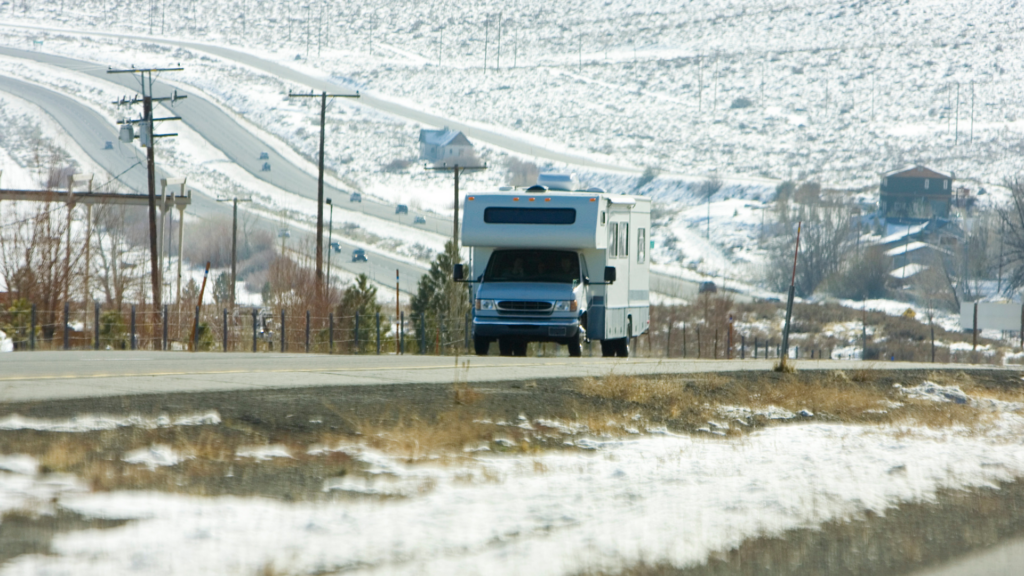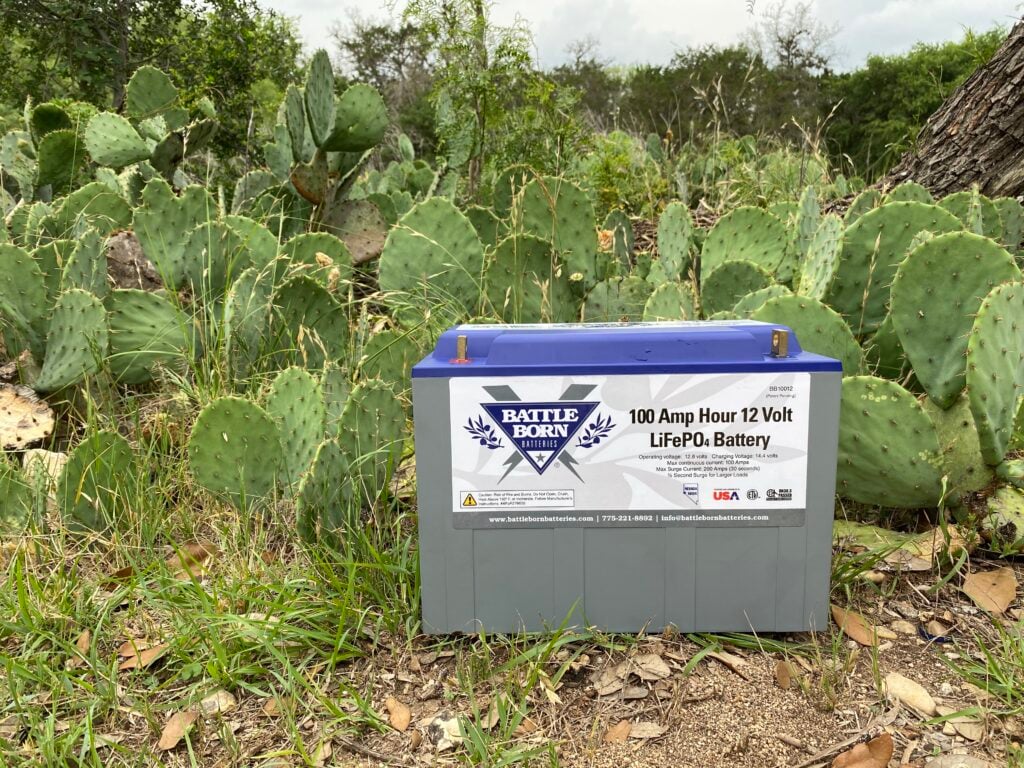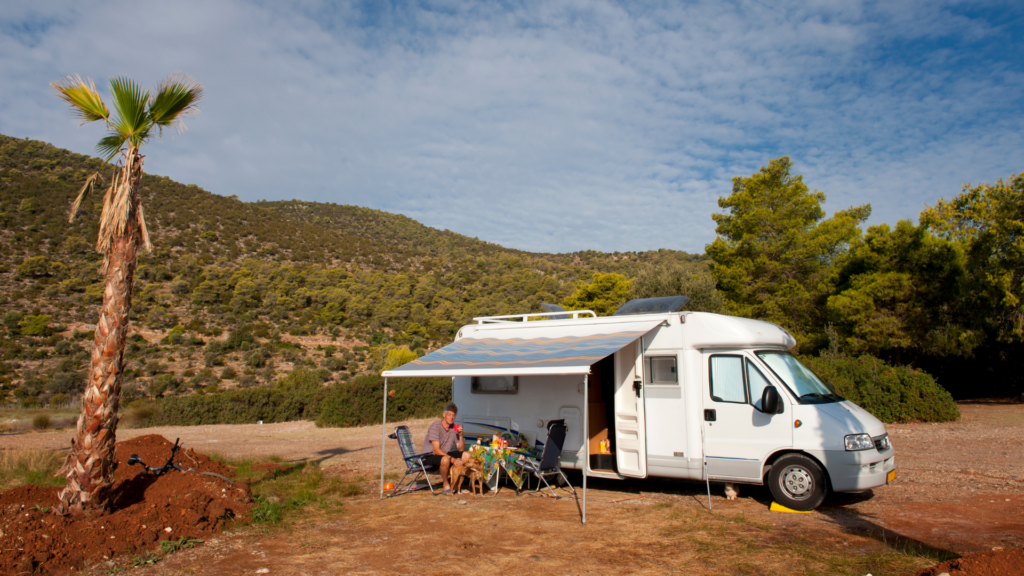One of the best ways to escape a packed campground and enjoy some peace and quiet is to boondock. However, to maximize your boondocking experience, you may want to consider upgrading your battery bank. If you’re searching for the best RV battery for boondocking, we’ve got a few things for you to consider. Let’s take a look!
What Are the Different Types of RV Batteries for Boondocking?
There are a few different types of RV batteries that you’ll see for boondocking. Let’s look at each of them.
Lithium-Ion
Lithium-ion batteries are taking over the battery market. They pack a tremendous amount of power for their size and weight. They’re one of the lightest RV batteries available and also can discharge fully without damaging the battery.
A lithium-ion battery also has an incredibly long 10-15 year lifespan. Despite a higher upfront cost, lithium-ion RV batteries are the most cost-effective option for RV batteries. Many manufacturers provide warranties for 10 years or more for their batteries.
Flooded Lead Acid
Most RVs roll off the dealership lot with lead-acid batteries. These batteries are cheap, readily available, and require maintenance. They charge more slowly than other batteries. They also have a lower depth of discharge. When this type of RV battery dips below 50% charge, the life expectancy is drastically reduced. Leaving a lead-acid battery discharged below 50% for an extended period will further increase the damage and reduce performance and life expectancy.

Sealed-AGM and Gel
Sealed-AGM and gel batteries are another popular choice for RVers. This type of battery is similar to a lead-acid battery in that it shouldn’t dip below 50% charge. This means if you install 400 Ah of AGM batteries, you really only have 200 Ah of usable power before you risk damaging your battery bank.
Where AGM is similar to a lithium-ion battery is that it’s a sealed battery. This means that once installed, an AGM battery is essentially maintenance-free. You won’t have to check electrolyte levels; it’s one less thing to worry about while RVing.
In terms of price, AGM batteries fall in the middle between lithium-ion batteries and lead-acid batteries. They’re a great option for RVers looking to upgrade their batteries but who don’t want to fork over the cash for lithium-ion batteries.
What to Look for in an RV Battery
While you’re shopping for the best RV battery for boondocking, there’s a handful of things that you should consider. Make an informed decision to avoid any chance of buyer’s remorse.
Capacity
RV batteries are measured in amp-hours (Ah). A majority of the RV batteries used for boondocking are 100 Ah batteries. However, the BB8D is Battleborn Batteries’ newest battery and provides a massive 270 Ah.
The larger the capacity of your battery bank, the longer your batteries will last between charges. This is important when you consider how you plan to charge your battery bank. Increasing your capacity can help you avoid stressing over a cloudy or rainy day if you plan to use solar panels to charge your battery bank.
Environmental Temperature
The environmental temperatures can drastically reduce the performance of an RV battery. This is especially true when it comes to cold weather. While RV batteries can discharge during freezing temperatures, you shouldn’t charge them in extremely cold weather. Knowing how and where you plan to use your batteries is essential before making a large battery purchase.

Discharge Depth
While having hundreds or thousands of amp hours can be exciting, you may not be able to use all of them. You typically need to avoid discharging AGM and lead-acid RV batteries below 50%. So even if you invest in 500 Ah of AGM or lead-acid batteries, you’ll be limited to 250 Ah to maximize the life of your battery bank.
Lithium batteries provide the deepest depth of discharge, which is why many RVers choose them for their battery banks. You can fully discharge a lithium battery without damaging it or shortening its life.
Travel Terrain
You should consider where you plan to use your RV and the type of terrain you’ll encounter. AGM and lithium batteries are both sealed batteries, which means you won’t have to worry about leaks as you travel over uneven terrain. Boondocking often means navigating rough roads, so you definitely want to keep this in mind.
What’s the Best RV Battery for Boondocking?
When it comes to the best RV battery for boondocking, it’s no contest. Lithium-ion batteries are by far the best bang for your buck, and many RVers turn to Battleborn Batteries’ LiFePO4 batteries. There are 100 Ah and 270 Ah options that come with 10-year warranties.
These batteries are compact and light and allow you to maximize your battery bank space. Lithium-ion batteries can also charge at a much faster rate. This allows you to charge your batteries faster and make the most out of every bit of sunlight if you’re harnessing solar power.

How Many Batteries Do You Need for Dry Camping?
When it comes to creating your battery bank, the number of batteries will vary from one RVer to another. The size of your battery bank will depend on the amount of power you’ll need while dry camping. Large and small battery banks can run RV air conditioners, but for different lengths of time.
If you plan to use high-powered electronics like coffee makers, microwaves, and air conditioners, you’ll easily need 600 Ah or more. You’ll not only need the cash to purchase the batteries but a place to store them as well. However, if you’re OK with pulling out your generator to run the AC, or you’re just looking to dry camp for one or two nights, you can get by with 200 to 400 Ah of batteries.
How Long Should My RV Batteries Last?
When it comes to life expectancy, it’s no surprise that more expensive batteries last longer. The cheapest batteries, lead-acid, will often last three to five years. If you upgrade to an AGM battery, you can expect four to eight years. And the most expensive RV batteries, lithium-ion batteries, last about 10 to 15 years or potentially longer.

Why You Need the Best RV Battery for RV Boondocking
Having the best RV battery allows you to maximize your RV boondocking experience. Boondocking enables you to camp in less crowded areas and enjoy new landscapes without fighting the crowds. Having power for as long as possible is an essential part of a memorable boondocking adventure.
If Battle Born Batteries is out of your price range, you can check out this helpful RV Battery Buying Guide for other great options!

I bought two Battle Born batteries on the recommendation of our Service director! veritably precious but if they live up to your prospects they will be worth it in the long run. They’re lighter, charge important faster, and are less precious due to their long life expectation. And no water is demanded!
I’ve had a lot of bad battery experiences throughout my life and this article helped me a lot to choose the best battery for my RV. Thanks so much for sharing this useful information.